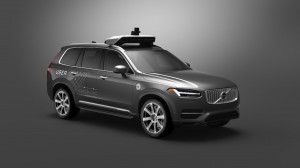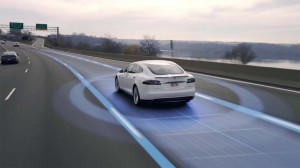Volvo Car Group has turned to Swedish-based supplier Autoliv to help speed up its autonomous vehicle program.
The as yet-unnamed venture, which will be based near Volvo’s headquarters in Gothenburg, Sweden, will focus on an array of new driver assistance and fully self-driving vehicle technologies. The move follows a series of similar steps by automotive rivals hoping to rev up their own autonomous vehicle projects.
“By combining our know-how and resources we will create a world leader in AD software development. This means we can introduce this exciting technology to our customers faster,” said Volvo Cars Chief Executive Hakan Samuelsson.
Strongly identified with automotive safety, Chinese-owned Volvo has been pushing to become one of the leaders in autonomous vehicle research. It has begun testing prototypes near its headquarters in Sweden and, just last month inked a $300 million autonomous vehicle alliance with Uber. The largest of the U.S. car-sharing services eventually hopes to eliminate drivers in order to sharply reduce the cost of its services.
(For more on the Volvo-Uber alliance, Click Here.)
The new partnership with Autoliv will focus on a variety of different areas, including advanced driver assistance systems, or ADAS, that would allow limited levels of hands-free driving. That technology should be in production by 2019, according to the two companies, while they intend to have fully autonomous systems ready for market by 2021.
Significantly, the new partners say they will not only use their technology on Volvo vehicles but offer it to other automakers around the world. Volvo and Autoliv plan to split the resulting revenues.
The new venture will initially employ 200 team members, that staff coming from both of the partners. Eventually, that figure will grow to a workforce of 600. It is unclear if any of those will also be involved in the Volvo-Uber venture. The Swedish maker said last month it would hire 400 engineers for that project, primarily to work on software development.
Autonomous vehicle development has become a hot topic in the auto industry, with virtually every major carmaker, and numerous suppliers, launching projects of their own. Just last month, mega-supplier Delphi announced an autonomous vehicle venture teaming it up with Mobileye. That Israeli start-up already provides the camera-on-a-chip system used by moth manufacturers for technologies such as forward collision warning and emergency auto-braking.
(Click Here for more on the Delphi-Mobileye deal.)
A number of automakers already have ADAS systems on the road, some capable of allowing limited hands-free driving. But a fatal May 9th crash involving a Tesla Model S driven in Autopilot mode underscores the challenges researchers still face. Meanwhile, prototype vehicles developed by tech giant Google, considered a leader in autonomous research, have been involved in more than a dozen crashes to date.
Nonetheless, most experts believe the first fully autonomous vehicles could be on the road by around the beginning of the next decade. Ford Motor Co. has announced plans to go even further, and has targeted launching its first totally driverless vehicle by 2021.
(Tesla Looks to Upgrade Autopilot system. Click Here for the latest.)
Ford sold Volvo in 2010 to China’s Zhejiang Geely Holding Group Co. The maker continues to base its operation in Gothenburg but now operates two assembly plants in China.



